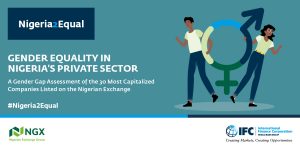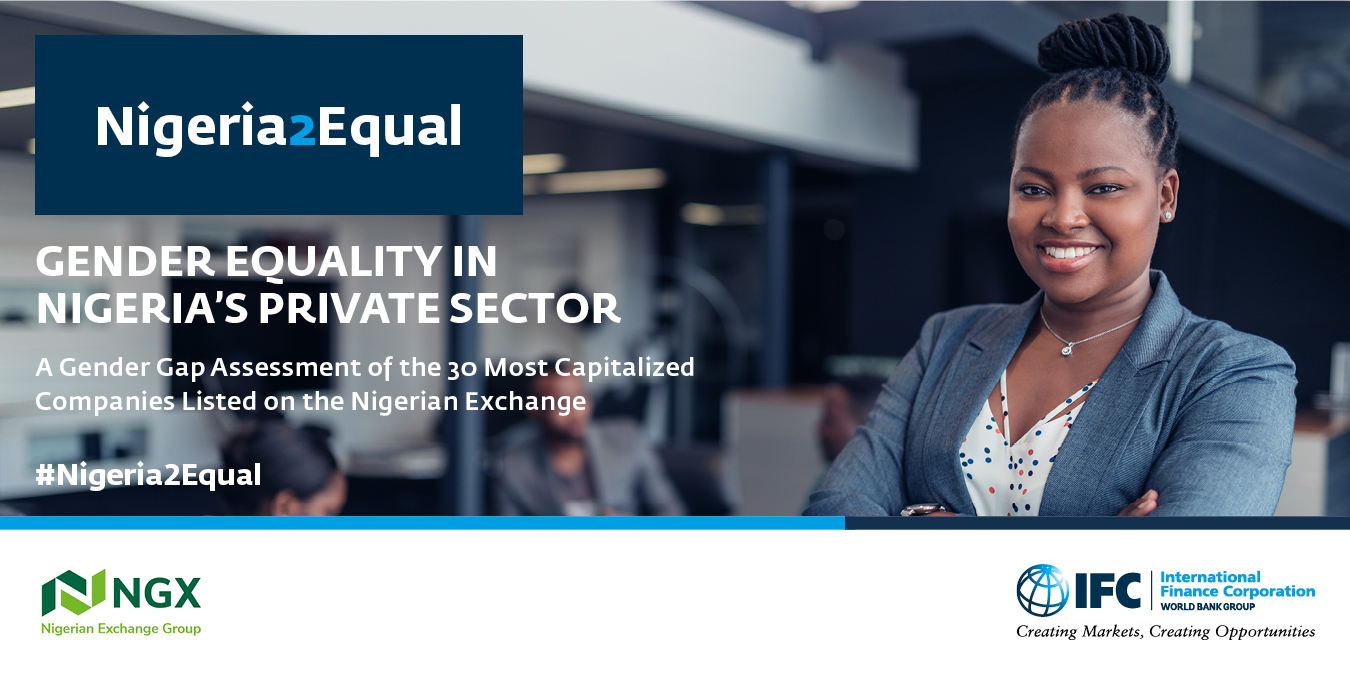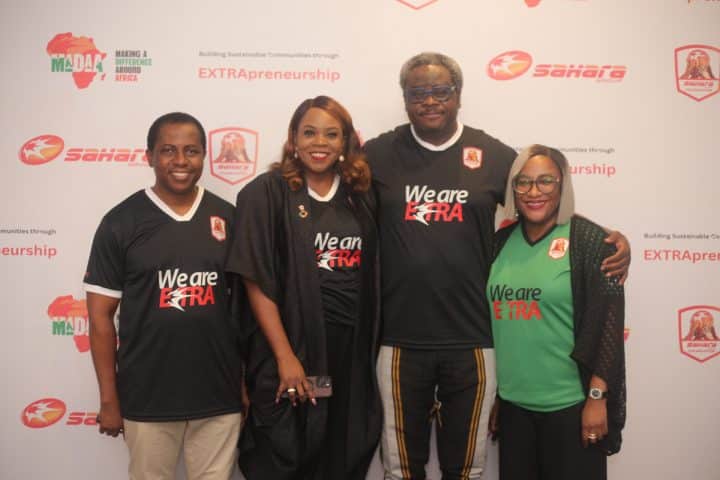NEW study undertaken by International Finance Corporation (IFC) in partnership with Nigerian Exchange (NGX), has found that more women have made it to the top of Nigerian companies as Chief Executive Officers (CEOs) and chairpersons of boards than in some G20 countries.
The study which was titled, “Gender Equality in Nigeria’s Private Sector: A Gender Gap Assessment of the 30 Most Capitalized Companies Listed on the Nigerian Exchange,” aimed to assess work place gender policies of 30 most capitalized companies listed on the Nigerian Exchange (NGX), formerly the Nigerian Stock Exchange.
Join our WhatsApp ChannelThese 30 companies represented a range of sectors—1 in communications, 10 in consumer staples, 3 in energy, 12 in fnancials, 3 in materials, and 1 in utilities.
The study however, found that there are persistent gender gaps at the leadership level, in the workforce, and in supply chains, which impacts women’s ability to participate equally as men in Nigeria.
These findings set the context for IFC’s Nigeria2Equal Peer Learning Platform, which brings together leading companies to make specific, measurable, and time-bound commitments to increase women’s participation in Nigeria’s private sector.
IFC established the Nigeria2Equal Program in partnership with Nigerian Exchange Limited (NGX), to reduce gender gaps across the workforce, in corporate leadership, and in entrepreneurship.
As stated in the study report, “This 24-month program, which began in 2020, has three components: research, a peer learning platform, and firm-level support for individual companies. Through these components, Nigeria2Equal is supporting companies in implementing gender-smart business strategies that promote gender equality and help to improve business performance.
“As part of Nigeria2Equal, Equileap, the leading provider of data on gender equality, reviewed publicly available documents for the 30 most capitalized companies listed on NGX to assess their gender equality indicators in four categories:
• Category A: Gender Balance in Leadership and the Workforce
• Category B: Equal Compensation and Work-Life Balance
• Category C: Policies Promoting Gender Equality
• Category D: Commitment, Transparency, and Accountability.”
The report said Nigerian companies scored an average of 32 percent, which compares favorably with Equileap’s global average score of 34 percent.
In terms of company performance, the report indicated that the top fve performing companies, which scored 42 percent or above were Sterling Bank (52%), Access Bank (49%), Lafarge Africa (47%), Guinness Nigeria (44%), and Ecobank (42%).
“The report helps take stock of progress and makes recommendations for areas requiring attention, not only by the companies assessed, but also by the broader corporate community, policymakers, and investors looking to add a gender-lens to their investment processes while adding value to listed companies.
“We hope that it inspires Nigeria’s private sector to prioritize these areas —and commit to closing gender gaps,” says a statement signed by Adaorie Udechukwu, Gender Specialist, IFC.
![]()

Victor Ezeja is a passionate journalist with seven years of experience writing on economy, politics and energy. He holds a Master's degree in Mass Communication.



















Follow Us